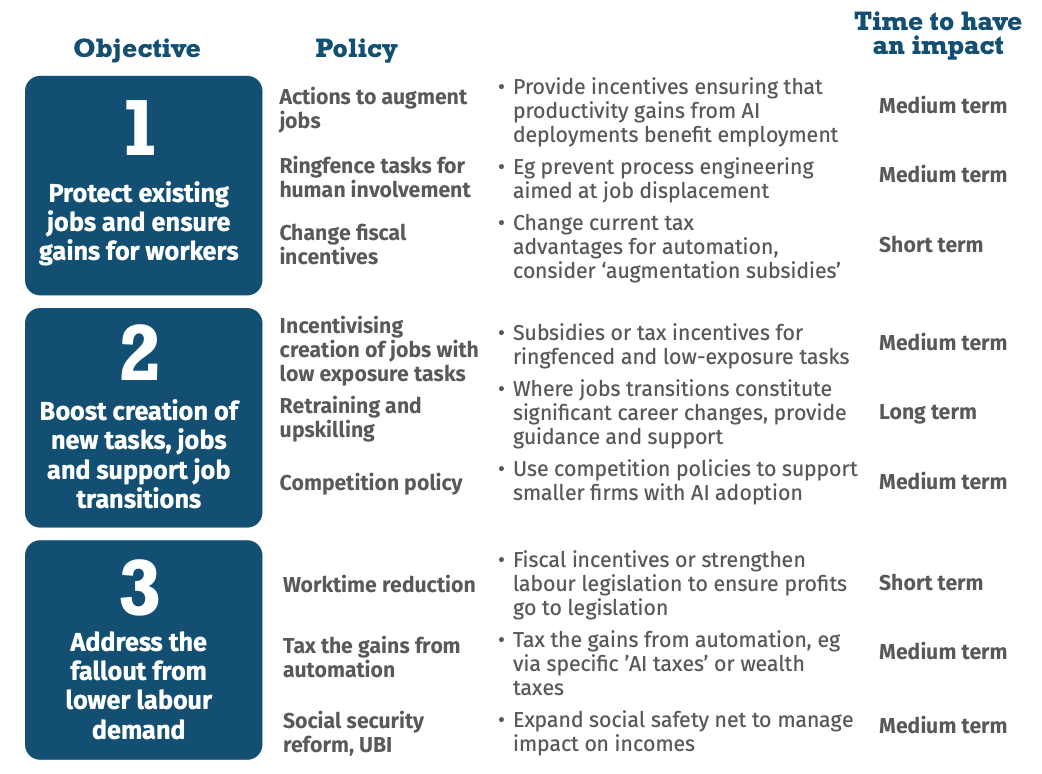The increased adoption of AI in the workplace could lead to the loss of up to eight million jobs in the UK if authorities do not act quickly, according to a report published by the Public Policy Research Institute (IPPR).
The report said the UK government faces a ‘sliding door moment’ where a lack of response to AI developments could lead to a ‘worst case scenario’ of millions of jobs being lost.
Two key stages of generative AI adoption have been mentioned: There is a first wave currently underway and a second wave where AI is more deeply integrated into business processes.
IPPR analyzed 22,000 jobs covering all job types in the UK economy and found that 11% of the jobs workers do are already exposed to what the report calls the AI “experimental phase”.
Back-office, entry-level and part-time jobs are most exposed to this first wave, with women affected much more than men.
The depth of AI integration within enterprises during the second wave is not yet known, but the report warns that up to 59% of assessed operations could be affected.
While the first wave affected occupations such as database management, scheduling, or inventory management, the next wave will also affect “non-routine cognitive tasks (such as creating and maintaining databases) and increasingly affect high-paying occupations.” It is expected.”
Entry-level positions are typically where young job seekers begin their careers. The report predicts that companies will adopt AI technology for these roles rather than hiring younger workers.
In the worst case scenario, AI could replace 7.9 million UK jobs. However, in the best-case scenario, no jobs would be lost and GDP could increase by 13.4%. There is no predetermined path, but policymakers must act to avoid a jobs apocalypse.
Find out more here: https://t.co/44flk0ARD4 pic.twitter.com/dyYukhS44M
– IPPR (@IPPR) March 27, 2024
Action needed
IPPR acknowledges that technological change is a good thing, but says “unmanaged technological change always carries risk and disruption.”
AI is expected to provide a major boost to the UK economy, but there is a risk that the distribution of additional funds could be unequal. The report found that AI deployment could lead to a 30% increase in wages in some cases and a 0% increase in others.
“Technology is not destiny and the end of jobs is not inevitable,” said Carsten Jung, Chief Economist at IPPR. Governments, employers and unions now have the opportunity to make important design decisions to ensure that this new technology is well managed. “If we don’t act quickly, it may be too late,” he said.
Some of the interventions recommended in the report include:
- Supports “green jobs” – jobs that require manual interaction and are thus less exposed to AI automation.
- Promote “social jobs” that can meet the growing need for social and mental health services. Highly interpersonal occupations, such as sports coaches, are also more resilient to AI automation.
- Demarcates specific tasks with policies that require ongoing human participation.
- Provide tax incentives or subsidies to encourage companies to choose expansion of AI jobs rather than full replacement.


“We have seen occupations such as copywriters, graphic designers and personal assistant roles being significantly impacted by AI,” said Bhargav Srinivasa Desikan, IPPR Senior Research Fellow. The question is: How can we drive technological change in a way that creates new job opportunities, increased productivity, and economic benefits for everyone?”
The report cited comments by OpenAI CEO Sam Altman calling for some kind of AI tax in 2021 to ensure the gains from automation are distributed more evenly through an expanded social safety net.
Can AI make universal basic income (UBI) a reality? maybe. While we wait, prospective students may want to scrap their college applications and instead pursue a career or career in social work.


